NYC residents agree: heat pumps improve comfort

January 12, 2026
Residents of a 10-unit apartment building retrofitted with electric heat pumps preferred the pumps to their oil-fueled boiler.

January 12, 2026
Residents of a 10-unit apartment building retrofitted with electric heat pumps preferred the pumps to their oil-fueled boiler.

January 12, 2026
Cornell researchers, in partnership with the technology company NVIDIA, have developed a method for creating digital images of cloth that more accurately captures the texture, sheen and translucence of textiles.
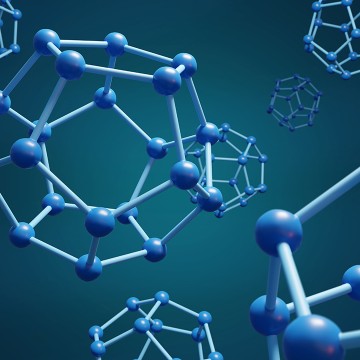
January 09, 2026
Smaller grains – the microscopic crystal regions within the material – normally make metal stronger, but when deformed at extreme speeds, this rule flips and metals with very small grains actually become softer, new Cornell research reveals.
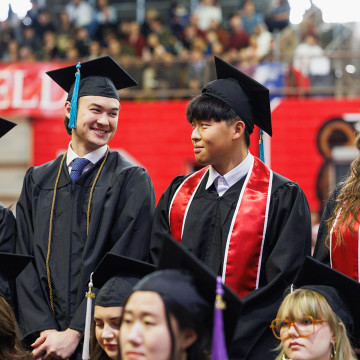
December 22, 2025
More than 500 graduates and 2,000 friends and family celebrated at the 23rd December Recognition Ceremony on Dec. 21.
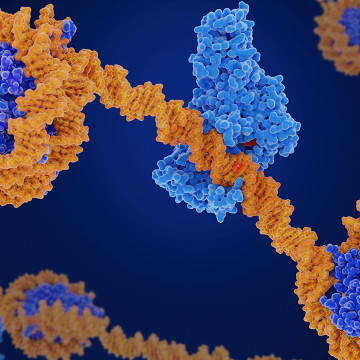
December 18, 2025
Researchers discovered that DNA packaging structures called nucleosomes, which have been traditionally seen as roadblocks for gene expression, actually help reduce torsional stress in DNA strands and facilitate genetic information decoding.

December 17, 2025
Cornell’s impact was felt near and far, from the lacrosse fields to research labs and beyond in a turbulent 2025.
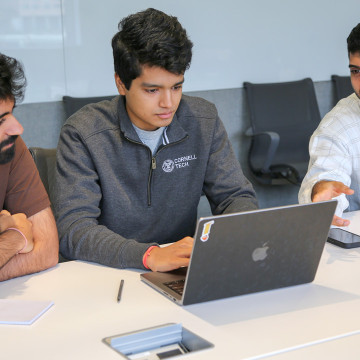
December 16, 2025
People usually strive to be their true, authentic selves, but this fall, five master’s students at Cornell Tech adopted not only alter egos but also “bad intent,” in an effort to make AI safer for health workers serving people with diabetes.

December 16, 2025
In new research that puts the latest models to test in a 3D environment, Cornell scholars found that AI fares well with untangling basic knots but can’t quite tie knots from simple loops nor convert one knot to another.
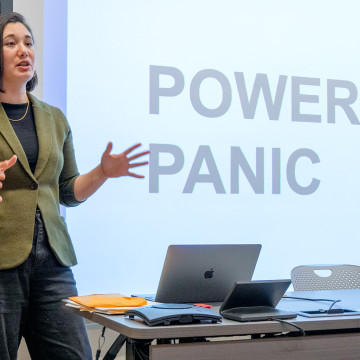
December 15, 2025
Know Your Rights presentations are part of the ongoing Cornell Immigration Legal Information Project, funded with a grant from the Park Foundation and started in January 2025.

December 11, 2025
Manipulating mouse brains during sleep improved their ability to remember new experiences that would normally be forgotten – a finding with important implications for treating Alzheimer’s disease.
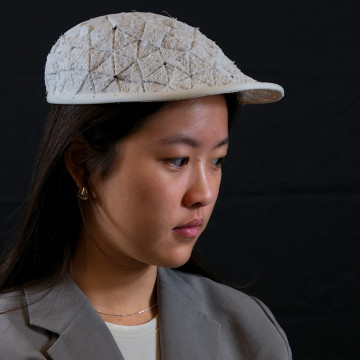
December 10, 2025
Researchers from the Cornell Bowers have developed OriStitch, a new software and fabrication system that takes simple 3D objects and spins them into a design for a textile version using carefully placed stitches in fabric.
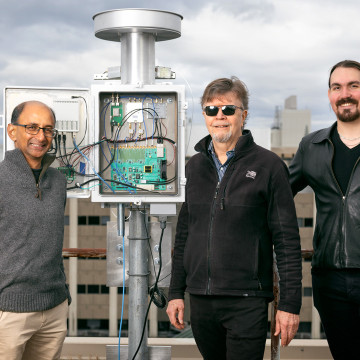
December 10, 2025
The Global Radio Explorer telescope is a series of eight terminals being built and tested at Cornell and the California Institute of Technology, and installed at locations around the world.
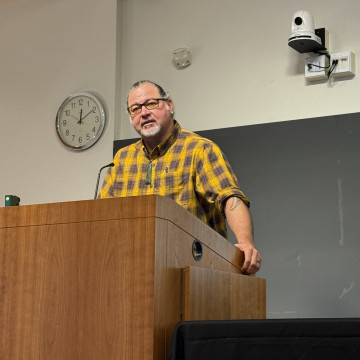
December 08, 2025
Sweeney Windchief, professor of adult and higher education at Montana State University, discussed mentoring relationships during a 2025 MAC Public Keynote.

December 08, 2025
Anthropology alumna Dusti Bridges, Ph.D. ’25, was selected for the CGS/ProQuest Distinguished Dissertation Awards in the humanities and fine arts.
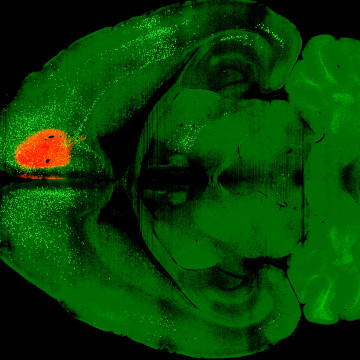
December 05, 2025
An international collaboration led by Cornell researchers used a combination of psilocybin and the rabies virus to map how – and where – the psychedelic compound rewires the connections in the brain.
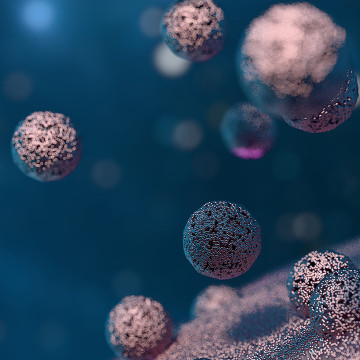
December 03, 2025
Scientists have outlined exactly how embryonic stem cells protect other cells from the effects of oxidative stress, thus preventing cellular aging.

December 01, 2025
The color “ultrablack” has a variety of uses, including in cameras, solar panels and telescopes, but it’s difficult to produce and can appear less black when viewed at an angle. A Cornell lab has devised a simple method for making the elusive color.
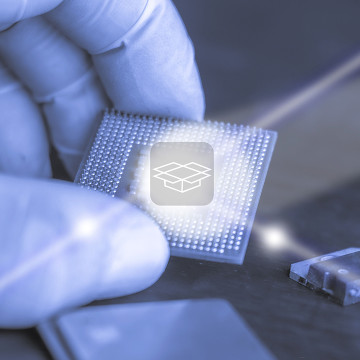
November 20, 2025
By studying the theoretical limits of how light can be used to perform computation, Cornell researchers have uncovered new insights and strategies for designing energy-efficient optical computing systems.
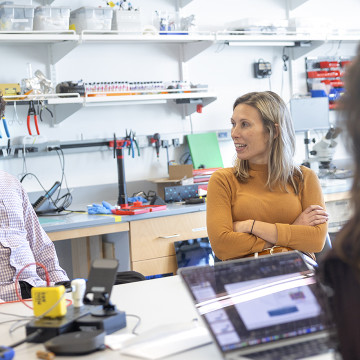
November 18, 2025
Researchers are using 3D printing to custom build high-efficiency, low-cost electric rockets that, combined with novel propellants, will keep small satellites in low Earth orbit.
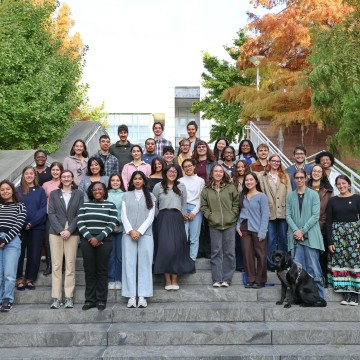
November 17, 2025
The Graduate School welcomed nearly 60 new Dean’s Scholars at an event to honor students who were nominated and selected for this distinction for their demonstrated academic excellence, leadership and service.

November 14, 2025
This episode features speakers and attendees recorded live during the Oct. 31 conference at Cornell Tech in New York City.

November 14, 2025
The weekend event involved more than 150 undergraduate and graduate students from across Cornell.
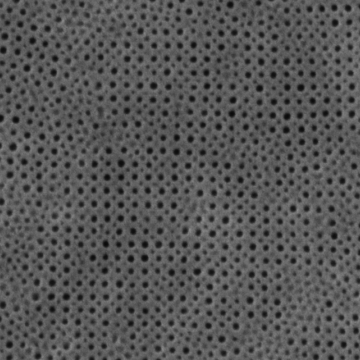
November 13, 2025
Cornell researchers have created porous materials that filter molecules by their chemical makeup.

November 13, 2025
Cornell researchers have developed a powerful new biosensor that reveals, in unprecedented detail, how and where kinases – enzymes that control nearly all cellular processes – turn on and off inside living cells.

November 13, 2025
Fruit and vegetable farmers across the U.S. said that labor was the biggest barrier to adopting sustainable practices, with many farmers perceiving the labor requirements to be higher than they are.